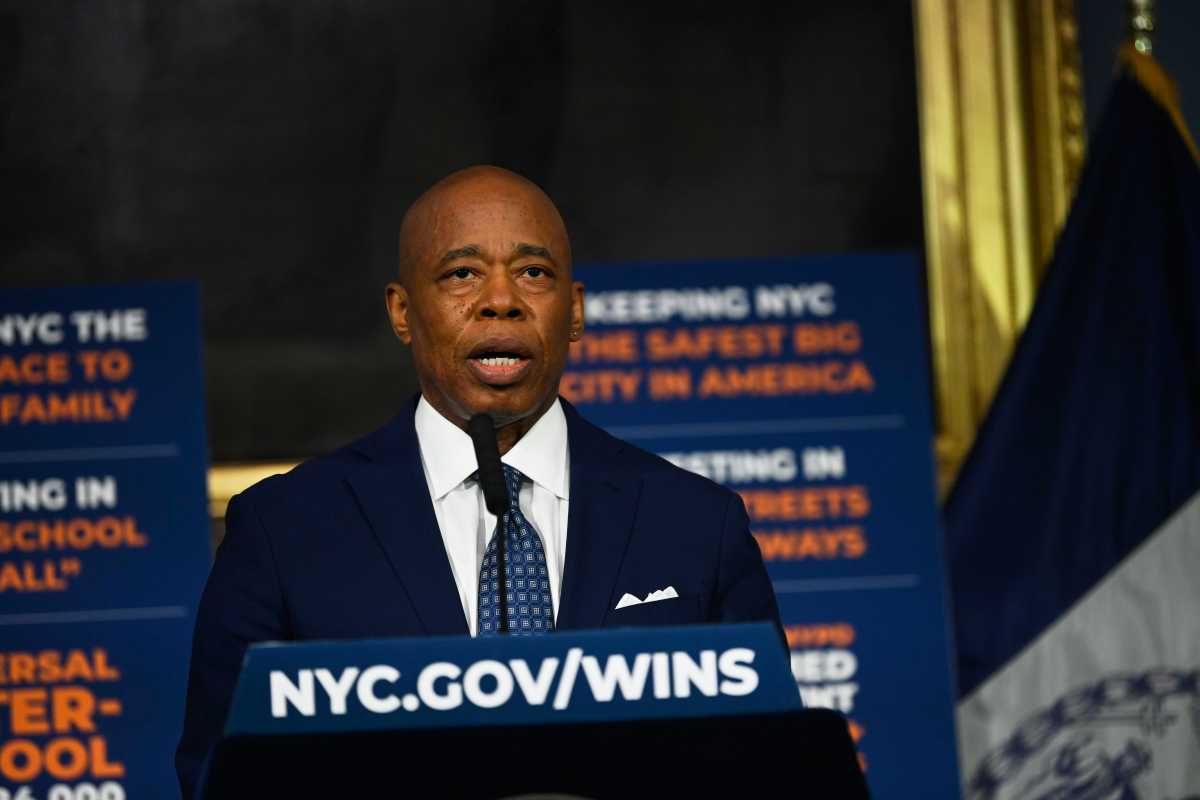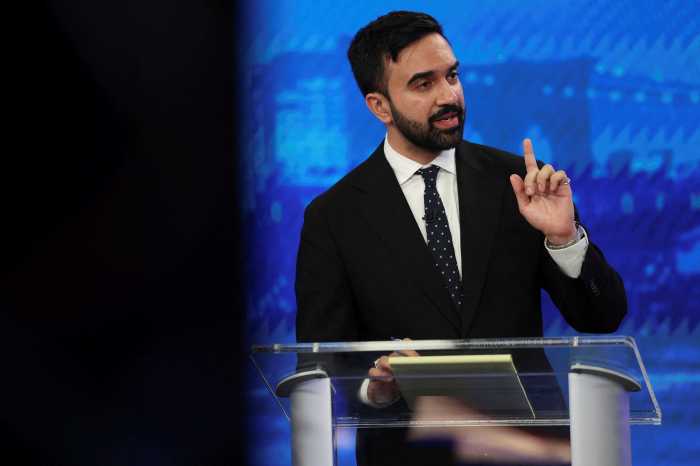By Prem Calvin Prashad
The sudden and dramatic implementation of a “zero tolerance” policy for asylum seekers by the Trump administration has renewed scrutiny on Immigrations and Customs Enforcement, with many immigration advocates now calling for the abolition of the agency. Though ICE has operated extensively throughout the city, reports of 2,500 children separated and detained or sent to foster case has brought national scrutiny on the agency.
Last week, progressive Democrat Alexandria Ocasio-Cortez, won a convincing victory over Congressman Joe Crowley (D-Jackson Heights) calling for, among other polices, the abolition of ICE. Mayor de Blasio, as well as U.S. Sen. Kristin Gillibrand (D-NY) have also voiced support for abolition.
ICE was formed as part of a reorganization of the nation’s security apparatus after the 9/11 attacks. Under the Homeland Security Act of 2002, ICE is responsible for the enforcement, investigation, intelligence detention and deportation efforts of agencies, including the Immigration and Naturalization Service and United States Custom Service. Since then the agency has come to operate 200 detention centers across the country with a minimum quota and Congress has authorized the construction of additional detention centers in the coming years. Immigration activists have charged that the agency lacks oversight and discretion when detaining otherwise law-abiding immigrants. There are also concerns that the agency is more susceptible to political pressure than other law enforcement agencies.
Republicans have largely remained silent on family separations and no Republican senators backed a Democratic bill to demand family reunifications. The president has praised ICE, claiming on social media that the agency has “liberated towns” from MS-13, a violent street gang that conservatives cite when justifying the collective punishment of undocumented persons.
President Trump has backtracked from earlier assertions that Democrats were solely responsible for the detention of children and a legislative solution. This clashed significantly with the administration’s demands for border wall funding that held up all reform legislation, as well as the public statements of his advisers, most of whom have vocally supported ICE’s operations. Last month the president relented and signed an executive order that stipulated the reunification of children and their parents. It remains to be seen, however, whether the president will push forward with the “indefinite detention” of families – a fall-back policy that leaves immigration reformers aghast and likely would be challenged in court.
Though there are certain to be many iterations of legislation to abolish ICE, one possible bill, introduced by Congressman Mark Pocan (D-Wis.) would set up a commission to investigate ICE’s powers and determine which are subject to abuse by the president. Pocan, of the House Progressive Caucus, has claimed in interviews that the dramatic overreach and abuse by ICE has left many terrified to cooperate with the agency, which hurts its investigative efforts. It is unclear however, whether the recommendations would be binding or if the agency would remain active, albeit with reduced powers and greater oversight.
As many remain skeptical of ending the agency’s directive or delegating its responsibilities back to other federal agencies, any reform proposal backed by Democrats is likelier to resemble the Pocan proposal rather than an outright abolition. Many Democrats are not yet committing to calls from activists and the progressive wing of the party. U.S. Sen. Chuck Schumer (D-NY) has yet to take a position on whether the agency should be shut down. Other high-profile Senate Democrats have indicated a need to change the policies that have given the agency free rein to detain whomever they see fit. Others are skeptical that any change is possible given that the directive comes straight from the Trump White House.




































